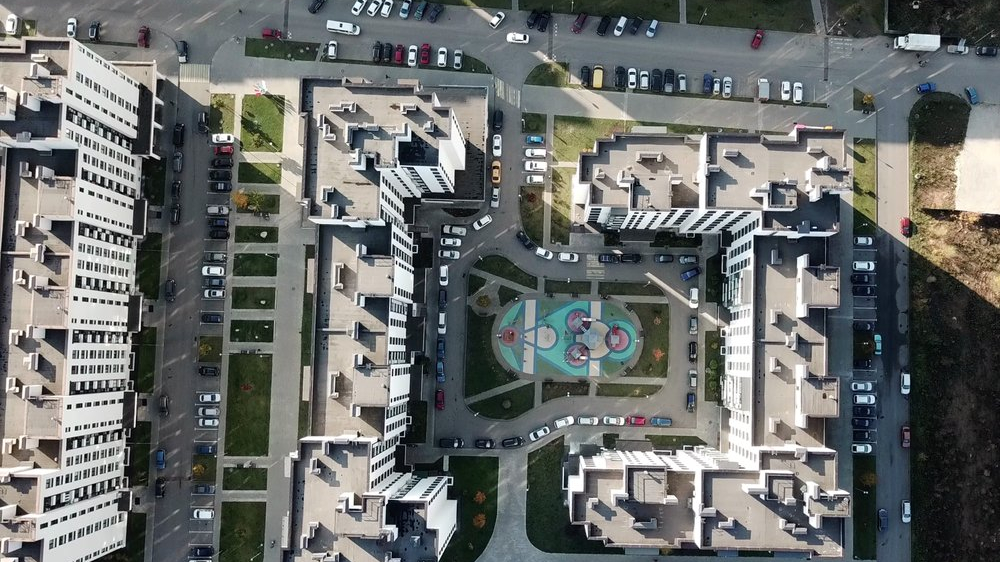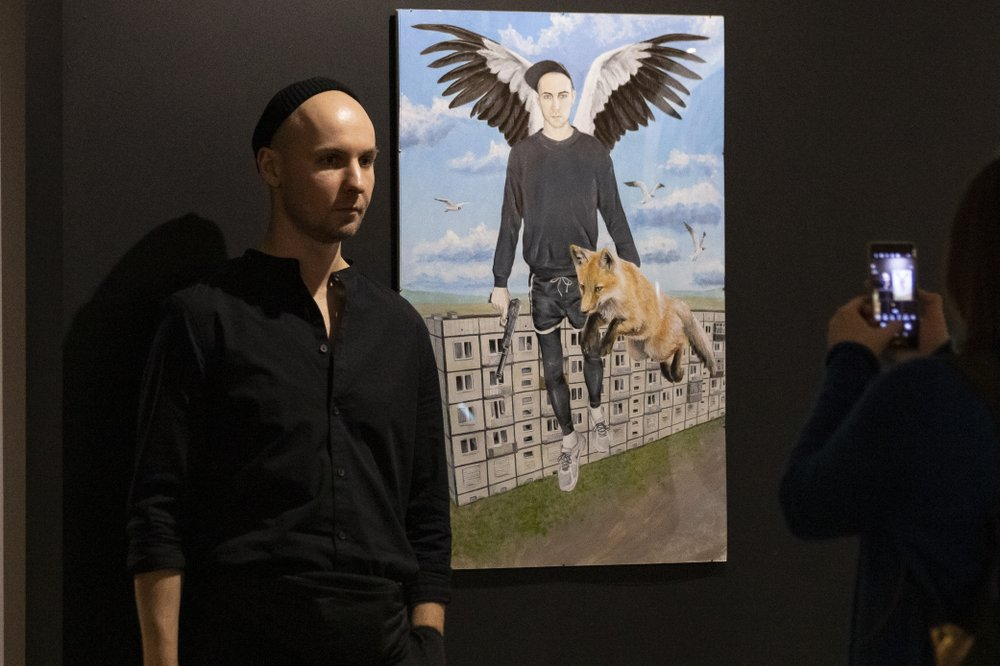"Beyond the Center" is staging art events across Moscow's vast urban space starting this fall and culminating in March 2020. With the participation of the Museum of Vienna and the Austrian Cultural Forum, the exhibit uses contemporary art to explore the many hidden facets of life outside the Russian capital's nucleus.
Simon Mraz, Austria's cultural attache to Russia and director of the Austrian Cultural Forum in Russia, says the "real" Moscow, where most of the city's 12.6 million people live, is outside the center.

Aerial view of Novo-Molokovo suburb in Moscow, Russia. /AP Photo
Aerial view of Novo-Molokovo suburb in Moscow, Russia. /AP Photo
"They all come to Moscow with some dreams, facing struggles, hoping for a better future. They won't find it in Red Square and definitely not in the Kremlin," Mraz, curator of the exhibition said.
Despite a steep decline in Russia's population, Moscow is growing – fueled by a steady influx of people in search of jobs and a better life.
Hailing from southern Russia, self-taught painter Pasmur Rachuiko offers an extreme outsider's view of Moscow reality.
Burka-clad figures, policemen and wolves pose in the suburbs, gangsters have angels' wings and young women carrying AK-47 rifles stare out of his canvases. Rachuiko depicts himself as "everyman" among this cast of new Russian archetypes.
"These characters are from my personal world, but living in Russia today, scrolling through my Facebook feed, I see these symbols all around me," said Rachuiko, whose exhibit is at the Gogol Center in central Moscow.

Artist Pasmur Rachuiko poses during the exhibition in Gogol Center, Moscow, Russia. /AP Photo
Artist Pasmur Rachuiko poses during the exhibition in Gogol Center, Moscow, Russia. /AP Photo
"Success is the story of how you came to Moscow, found work, got a mortgage and became a real person," said sociologist Natalia Zubarevich. "It's a tough city, totally intolerant and very selfish."
In "Polly wants a cracker," Austrian artist Michele Pagel sees a darker side of Moscow – domestic abuse. Her visceral sculptures, located opposite the Kremlin, seek to bring violence against women back from the peripheral vision of Russian society to its central focus.
Attending the opening, lawyer Alyona Popova campaigns to reverse a 2017 law decriminalizing certain types of domestic abuse in Russia. According to the advocacy group "You Are Not Alone," an estimated 16 million Russian women suffer domestic violence each year.
A residential complex called Novo-Molokovo, just outside Moscow and still under construction, houses the newest generation of Muscovites. A studio apartment here costs 95,500 U.S. dollars. Curator Elena Ishchenko set art installations inside an "odnushka," or studio apartment.
"We got used to viewing the suburbs as strange, remote areas we don't want to visit," she said, adding "But when you get out here, thanks to the artist, you see something you wouldn't expect."
ZIP Group constructed a mesh tower to store domestic objects owned by middle class households. Artist Stefan Shubutin imagines breaking down the walls that isolate people living in tiny, high-rise apartments, their goods stored on overflowing balconies.
"The flats are closed, people don't often meet their neighbors," Shubutin said. "But here you can see your neighbor's stuff and ask to borrow a sled, skis, even a washing machine."
Source(s): AP